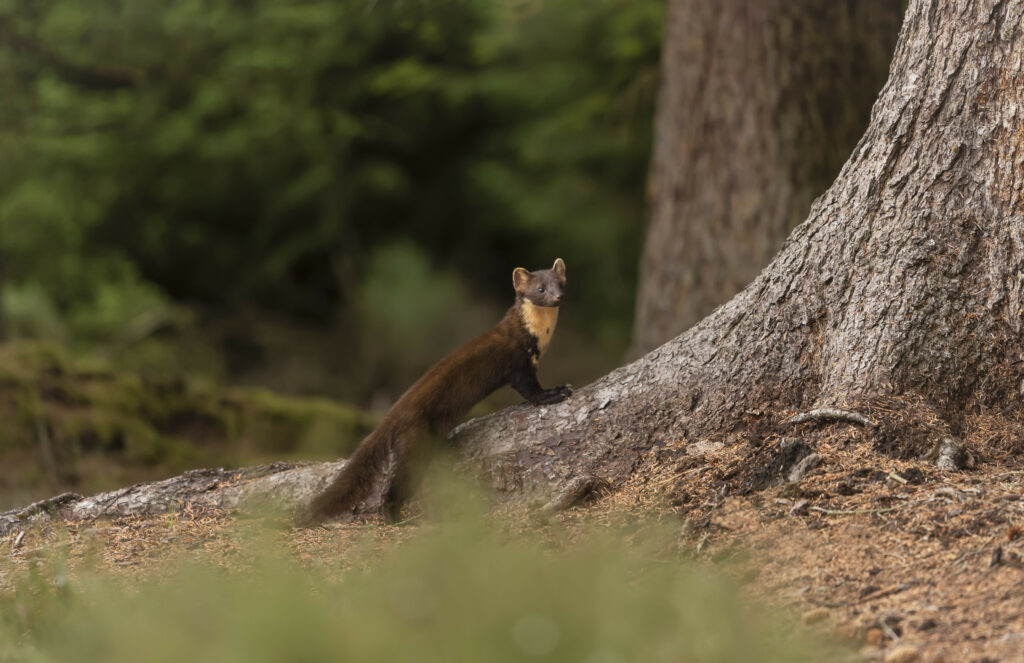Policy
‘Effectively protected’ land in England has declined to just 2.93%. With the government’s commitment to protecting 30% of Britain’s land and sea by 2030 fast approaching, campaigners warn that swift, direct action is needed to overturn these declines. Ocean protection has increased to 9.92% from last year’s 8%, however land protection has fallen to under 3%, less than last year’s estimate. Declines in land protection result from the diminishing condition of Sites of Special Scientific Interest (SSSI) due to climate change, pollution and overgrazing and conservation authorities agree that the UK government will need to take big steps over the next few years to meet 30×30 targets.

The UK Government has pledged £22b to support the development of two carbon capture and storage projects. Based in Merseyside and Teesside, these carbon capture projects will store carbon emissions from industry and energy production to help the UK meet its climate goals. This new industry is regarded as a key element in meeting targets around greenhouse gas emissions and is hoped to attract significant private investment as well as provide 4,000 jobs for local people. The captured carbon will be stored in deep geological storage in the North Sea and Liverpool Bay, with the hopes of removing up to 8.5 million tonnes of carbon emissions each year.
Environment
Rivers across the globe are drying at the fastest rate for thirty years, the World Meteorological Organization’s State of Global Water Resources Report has shown. The report has labelled the world’s water resources a ‘canary in a coal mine’ and calls for urgent action to tackle the risk to global water supplies. Over 50% of global river catchments exhibited abnormal conditions in 2023, the same year that we reached the hottest temperatures on record. These conditions have accelerated the hydrological cycle and have resulted in significant unpredictability, facilitating floods and drought.

Botanists from Kew’s Royal Botanic Gardens believe there are around 100,000 plant species yet to be discovered across the globe. A study revealed 33 areas that are likely to contain great numbers of undiscovered species and highlights regions in which botanists should be concentrating their search for new plants. By increasing the rate of discoveries, scientists hope to better target conservation and preservation, and discover these species before they are lost to extinction. Of the 33 areas identified, most are in Asia and include Vietnam and the eastern Himalayas. Africa, South America, Madagascar, Colombia and Peru have also been identified as key areas of interest.
Satellite data analysis from the University of Exeter has reported greening across the Antarctic continent. Due to the acceleration of the climate crisis, plant cover in the region has increased more than tenfold over recent decades, expanding from just 1km2 in 1986 to nearly 12km2 in 2021. Comprised mainly of mosses and green algae, this greening leaves the continent open to invasive species colonisation from foreign visitors. Although still dominated by ice, the growth of vegetation in the region is cause for concern and could facilitate further soil formation due to an increased presence of vegetative organic matter.
Conservation
Pine Martens have been successfully reintroduced to south-west England. In September, fifteen Pine Martens – eight females and seven males – were released in undisclosed locations on Dartmoor National Park for the first time in 150 years. After being driven to extinction by habitat loss and persecution, this translocation will reinstate natural predator-prey interactions and processes. Next year, the project will turn its attention to Exmoor National Park to translocate another group of these elusive mustelids.

Salmon numbers in England and Wales took a sharp decline in 2023. In a report by CEFAS and the Environment Agency, data showed that last year’s salmon stocks were at the lowest since records began in 1997 – declared catch in 2023 totalled 5,399, nearly 1,500 less than the year before. There are 64 principal salmon rivers in the UK (rivers which contain significant numbers), and only one of these is classified as not at risk. It is believed that climate change and polluted waterways are directly endangering these fish, as salmon are an indicator species for polluted waters.
The Welsh Government has announced its support for the reintroduction of Eurasian Beavers in Wales. With flood warnings becoming more regular across the country, the reintroduction of these animals could provide Wales with a nature-based solution to tackle water pollution and flooding through the creation of wetland habitats. The project is supported by over 90% of the Welsh population, revealed by a survey that was conducted by the Welsh Beaver Project who have been investigating the feasibility of reintroduction since 2005.







